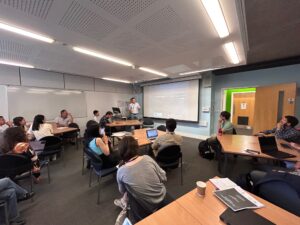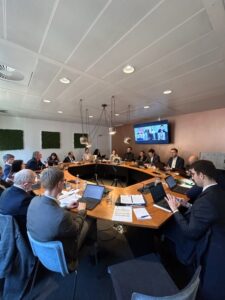The annual EU-SPRI conference is the leading European event on science, technology and innovation (STI) policy. This year’s conference on the theme “Research with impact” took place from June 14 – 16 at the University of Sussex Business School in the UK. ReConnect China researcher Philipp Brugner (ZSI) together with Robin Schindowski from Bruegel, researcher in our sister project “China Horizons”, took part in the conference with a paper stemming from their joint work in the two EU-funded projects.
The paper deals with a descriptive approach towards China’s state-controlled R&D financing for companies and research institutions in the clean energy sector. It sheds more light on the various channels through which the government participates in their R&D activities, which, despite their complexity and the challenge to map all of them (in particular when it comes to China’s regional levels), may be categorised along the following three prevalent types:
- National Key R&D programmes
- Firm-level R&D subsidies
- Government equity participation (in so called “SOE” – state-owned enterprises)
Given these ways of vertical governmental innovation support to accelerate the development of clean energy technologies as a current top-priority for Chinese leaders, the research paper, towards its final structure, further aims to carve out as well as quantify some of the trade-offs associated with China’s approach to harness vertical innovation support as a means to do industrial policy. As China is world-leader in manufacturing (and increasingly also in design and innovation) of clean energy technologies, this paper may also be situated in the European Union’s current debate about de-risking from China (by decreasing the EU’s import dependency) while decarbonising the European industry to meet the goals stipulated by the Green Deal until 2030 and 2050.

